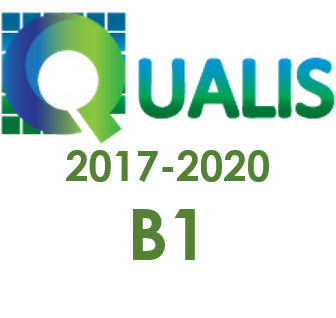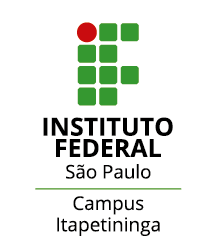Training of basic teachers at the university
preliminary indications of obsolete indoctrination
Keywords:
Teacher training. University. Knowledge. Learning.Abstract
The text aims to show that the formation of the basic teacher in university graduation is obsolete, because it is still in the instructional context of the beginning of the last century. Today it is required that teacher be an author, scientist, researcher, in order to be able to form students as authors, scientists, researchers, skills that would start already in preschool. The function of transmitting content reproductively is moving to the computer. It animates this discussion the learning vision as authorship, not as training, even though training is part of human learning, but as accessory instrumentation. School does not take seriously the diagnosis of school learning, ignoring that most students do not learn, especially in high school. BNCC (Basic National Common-Core) calls for the "re-creation of the school", which implies the re-creation of the teacher. The university, due to lack of self-criticism, does not accept to reinvent its undergraduate courses (pedagogy and teaching courses). It continues to train teaching professionals, while we need learning professionals. Teacher is not seen as guilty, but as also responsible for the student's learning. We have to take care of the teachers so they can take care of the students.
Downloads
References
ALTHUSSER, L. 1980. Ideologia e Aparelhos ideológicos do Estado. Editorial Presença, Lisboa.
ANUÁRIO BRASILEIRO DA EDUCAÇÃO BÁSICA. 2021. Todos pela Educação/Moderna. São Paulo - https://todospelaeducacao.org.br/wordpress/wp-content/uploads/2021/07/Anuario_21final.pdf?utm_source=site&utm_campaign=Anuario
BACICH, L. & MORAN, J. (Orgs.). 2018. Metodologias ativas para uma educação inovadora. Penso, Porto Alegre.
BASE NACIONAL COMUM CURRICULAR (BNCC). 2018. Educação é a Base. MEC, Brasília - http://basenacionalcomum.mec.gov.br/images/BNCC_EI_EF_110518_versaofinal_site.pdf
BOURDIEU, P. & PASSERON, J.C. 1975. A Reprodução - Elementos para uma teoria do sistema educativo. Francisco Alves, Rio de Janeiro.
CALAZANS, J. (Org.). 1999. Iniciação Científica: Construindo o pensamento crítico. Cortez, São Paulo.
CARRAHER, T. et alii. 1988. Na vida dez, na escola zero. Cortez, São Paulo.
CARRAHER, T.N. (Org.). 1988. Aprender pensando - Contribuições da psicologia cognitiva para a educação. Vozes, Petrópolis.
COSTANDI, M. 2016. Neuroplasticity. The MIT Press, Cambridge.
COULDRY, N. & HEPP, A. 2016. The mediated construction of reality. Polity, London.
DAVIES, P. 2019. The demon in the machine. Penguin.
DEACON, T.W. 2012. Incomplete Nature – How mind emerged from matter. W.W. Norton & Company, N.Y.
DEMO, P. & SILVA, R.A. 2021. Efeito Desaprendizagem na Escola Básica. Amazon - https://drive.google.com/file/d/1jnLdc4Eie3zY0eDbmfMrz6Kac17kVqj0/view
DEMO, P. 1990. Pesquisa: princípio científico e educativo. Cortez, São Paulo.
DEMO, P. 1996. Educar pela Pesquisa. Autores Associados, Campinas.
DEMO, P. 2011. A força sem força do melhor argumento – Ensaio sobre “novas epistemologias virtuais”. Ibict, Brasília.
DEMO, P. 2011a. Praticar Ciência – Metodologias do conhecimento científico. Saraiva, São Paulo.
DEMO, P. 2015. Aprender como Autor. Gen, São Paulo.
DEMO, P. 2017. Sobral está sobrando! O que Sobral tem que outros não têm? - https://docs.google.com/document/d/1LmTbbbQMUuU49L-a8Wlei-TdwcttStuQ4UboW2SMIlY/pub
DEMO, P. 2018. Atividades de aprendizagem – Sair da mania do ensino para comprometer-se com a aprendizagem do estudante. SED/Gov. MS, Campo Grande - https://drive.google.com/file/d/1FKskDCxNB422PVhrjrDjD48S4cjsb77-/view
DEMO, P. 2020. Algum risco de dar certo na educação básica – Exemplo do Ceará - https://pedrodemo.blogspot.com/2020/12/ensaio-556-algum-risco-de-dar-certo-na.html
DOIDGE, N. 2007. The Brain That Changes Itself: Stories of Personal Triumph from the Frontiers of Brain Science. Penguin, London.
ENEM 2020. 2021. Enem 2020 tem 28 redações nota mil... G1 Educação - https://g1.globo.com/educacao/enem/2020/noticia/2021/03/30/enem-2020-tem-28-redacoes-nota-mil-veja-desempenho-geral-dos-candidatos.ghtml
FOUCAULT, M. 1977. Vigiar e punir - História da violência nas prisões. Vozes, Petrópolis.
FREIRE, P. 1997. Pedagogia da Autonomia – Saberes necessários à prática educativa. Paz e Terra, Rio de Janeiro.
FUMAGALLI, A., GIULIANI, A., LUCARELLI, S., VERCELLONE, C. 2019. Cognitive capitalism, welfare and labor: The commonfare hypothesis. Routledge.
GERRISH, S. & SCOTT, K. 2018. How smart machines think. The MIT Press.
HARARI, Y.N. 2015. Sapiens: A brief history of humankind. Harper, London.
HARARI, Y.N. 2017. Homo Deus – A brief history of tomorrow. Harper, London.
HARDING, S. 1998. Is Science Multicultural? Postcolonialisms, feminisms, and epistemologies. Indiana University Press, Bloomington and Indianapolis.
HARDING, S. 2008. Sciences from Below: Feminisms, Postcolonialities, and Modernities. Duke University Press.
HARDING, S. 2015. Objectivity and diversity: Another logic of scientific Research. U. of Chicago Press.
HRDY, S.B. 1999. Mother Nature – A history of mothers, infants, and natural selection. Pantheon Books, New York.
KOCH, C. 2019. The feeling of life itself – Why consciousness is widespread but can’t be computed. MIT Press.
KNUDSEN, J., STEVENS, H., LARA-MELOY, T., KIM, H-J., SCHECHTMAN, N. 2017. Mathematical argumentation in middle-school – The what, why, and how: A step-by-step guide with activities, games, and lesson planning tools. Corwin, Thousand Oaks.
LANE, N. 2015. The vital question: Energy, evolution, and the origins of complex life. W.W. Norton & Company.
LEDOUX, J. 2019. The deep history of ourselves: The four-billion-year story of how we got conscious brains. Viking.
LINN, M.C. & EYLON. B.-S. 2011. Science Learning and Instruction – Taking advantage of technology to promote knowledge integration. Routledge, N.Y.
LUBIENSKI, C.A. & LUBIENSKI, S.T. 2013. The Public School Advantage: Why Public Schools Outperform Private Schools. University of Chicago Press, Chicago.
MEANS, A.J. 2018. Learning to save the future: Rethinking education and work in an era of digital capitalism. Routledge, London.
MEZIROW, J. & ASSOCIATES. 2000. Learning as Transformation – Critical perspectives on a theory in progress. Jossey-Bass, San Francisco.
PIAGET, J. 1990. La Construction du Réel chez l’Enfant. Delachaux & Niestlé, Paris.
PIAGET, J. 2007. Epistemologia Genética. Martins Fontes, Lisboa.
POPKEWITZ, T.S. 2001. Lutando em Defesa da Alma – A política do ensino e a construção do professor. ARTMED, Porto Alegre.
POPPER, K.R. 1959. The Logic of Scientific Discovery. Hutchinson of London, London.
POPPER, K.R. 1967. El desarrollo del conocimiento científico - Conjeturas y refutaciones. Paidos, Buenos Aires.
ROVELLI, C. 2017. Reality is not what it seems: The journey to quantum gravity. Riverhead Books.
SAHLBERG, P. 2010. Finnish Lessons – What can the world learn from educational change in Finland? Teachers College, N.Y.
SAHLBERG, P. 2017. FinishED leadership. Corwin, Thousand Oaks.
SCHLEICHER, A. 2019. PISA 2018 – Insights and Interpretations. OECD. OECD Publishing, Paris – https://www.oecd.org/pisa/PISA%202018%20Insights%20and%20Interpretations%20FINAL%20PDF.pdf
SLOTTA, J.D. & LINN, M.C. 2009. Wise Science – Web-based inquiry in the classroom. Teachers College Press, N.Y.
TAYLOR, E.W., CRANTON, P. & Associates. 2012. The Handbook of Transformative Learning – Theory, research, and practice. Jossey-Bass, San Francisco.
TIBA, Içami. 2007. Disciplina - Limite na medida certa. Integrare Editora, São Paulo.
TIBA, Içami. 2007a. Quem Ama, Educa! Integrare Editora, São Paulo.
VYGOTSKY, L.S. 1989. A Formação Social da Mente. Martins Fontes, São Paulo.
VYGOTSKY, L.S. 1989a. Pensamento e Linguagem. Martins Fontes, São Paulo.
ZERILLI, J., 2020. The adaptable mind: What neuroplasticity and neural reuse tell us about language and cognition. Oxford U. Press.
ZHAO, Y. 2014. Who is afraid of the big bad dragon: Why China has the best (and the worst) education system in the world. Jossey-Bass, San Francisco.
ZHAO, Y. 2018. What works may hurt – Side effects in education. Teachers College Press.
ZUBOFF, S. 2019. The Age of Surveillance Capitalism: The fight for a human future at the new frontier of power. Profile Books, N.Y.
Downloads
Published
How to Cite
Issue
Section
License
Copyright (c) 2021 Revista Internacional de Pesquisa em Didática das Ciências e Matemática

This work is licensed under a Creative Commons Attribution-NonCommercial-ShareAlike 4.0 International License.




